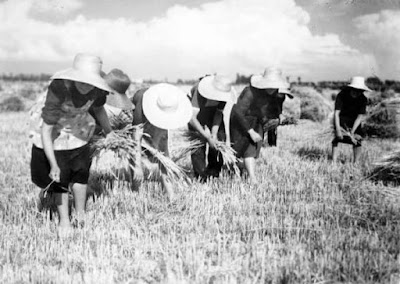Gleaning is an ancient tradition, deeply embedded in the agricultural world. In the past, it was common practice that the poor were given access to the grain fields after the harvest, so that they could collect the spikelets left on the ground by the harvesters. It wasn’t done just with grain, but with all kinds of agricultural products: fruit, olives, chestnuts, and more. Whatever was left after the first pass was for the poor and for the destitute to collect.
Gleaning was so important in the past rural societies that it was even sacred. We read in the Bible that God explicitly ordered to owners to give to the poor a chance to glean in their fields. And the origin of David’s lineage in the biblical tradition is related to gleaning, as described in the story of Ruth, a poor Moabite girl who married the owner of the fields where she gleaned. Other religions do not have such explicit references to gleaning, but most of them convey the idea that the rich should partake with the poor what they don’t need. For instance, a similar sharing command from God can be found in the Islamic tradition directed to water.
Gleaning remained a fundamental feature of rural societies until recent times; it is still done, occasionally (as you can see in this movie), but it has lost importance with the onrushing growth of the industrial society. It is not considered sacred anymore; on the contrary, the suspension of the property rights associated with gleaning is often seen as subversive in a world that emphasizes fenced private property and strictly regulated activities. In some cases, it was specifically prohibited, as in the Soviet Union in the 1930s. That was a terrible mistake that aggravated the famine known as the “holodomor” in Ukraine.
…click on the above link to read the rest of the article…
